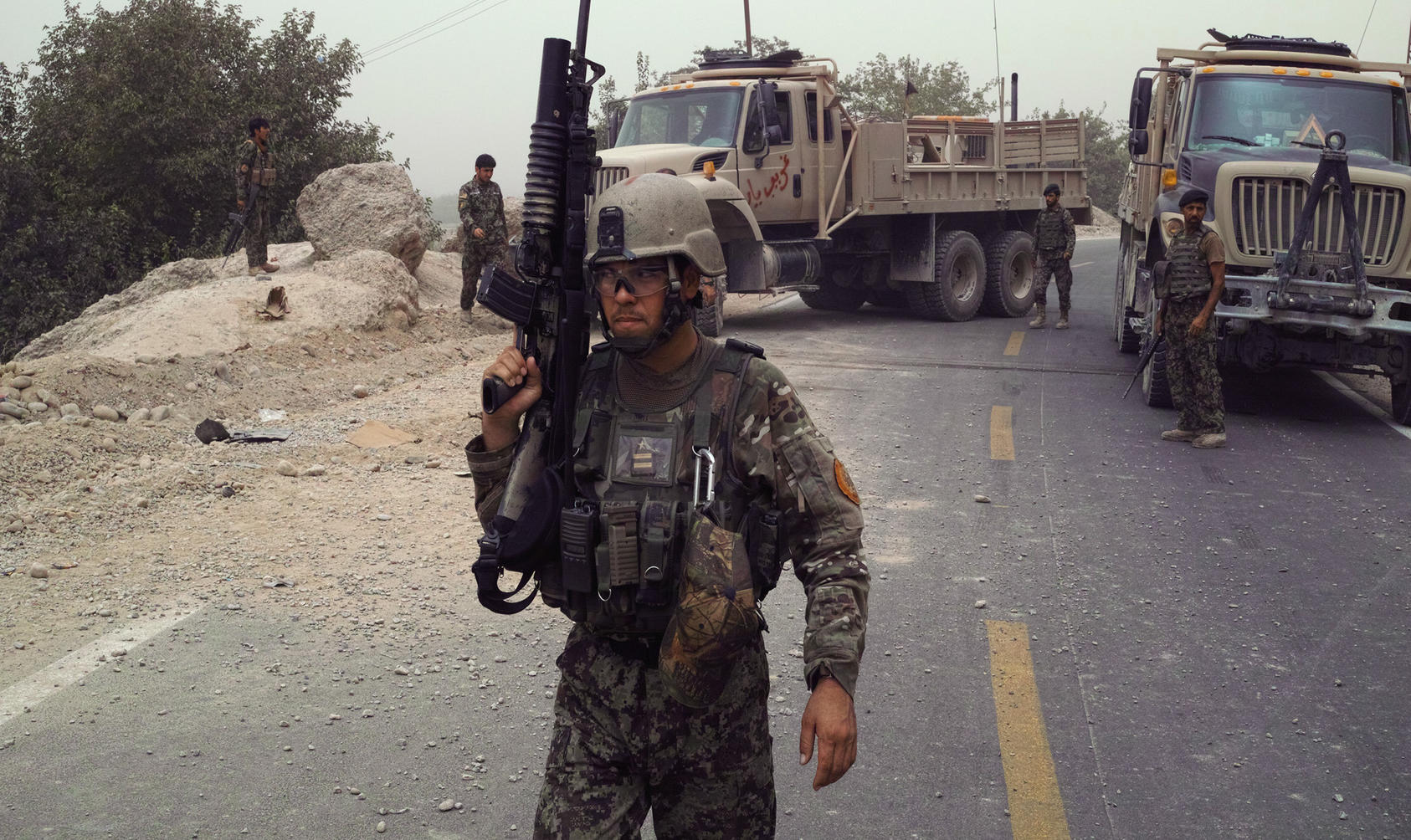The Taliban’s threat to Sangin, a strategic district of Helmand Province in southern Afghanistan, is a sobering reminder of the challenges that Afghan forces face and the risks that continue to plague the U.S. campaign against terrorism. It underscores the need for the United States, which is reviewing its strategy on Afghanistan, to prioritize a political settlement above tactical battlefield gains that fail to address strategic objectives.

This week’s move of Sangin’s government and military facilities a mile south to prevent civilian casualties in the case of Taliban attacks is a blow, because the area represented a hard-won success of the U.S. military surge. Marines wrested control from the Taliban in 2010, after some of the deadliest fighting of the Afghan war. Sangin was then transitioned to Afghan government control, and Afghan military forces took full responsibility for security in 2014.
Afghan security forces say they plan to reclaim territory with a new offensive in Sangin soon. But that only illustrates the “stalemate” that General John Nicholson, the leader of U.S. forces in Afghanistan, described in his February testimony to the Senate Armed Services Committee.
The Sangin setback comes at a significant time for the Trump administration, which just concluded a conference of the 68 nations and organizations in the Global Coalition to Counter ISIS and also is reviewing U.S. policy toward Afghanistan. Administration officials will be tempted to “cut our losses” in Afghanistan and retreat from U.S. ambitions to stabilize and develop a country that has been the focus of intensive efforts over the past 15 years.
But the parallels between Sangin in Afghanistan and Falluja in Iraq cannot be ignored. Falluja saw some of the deadliest and most courageous fighting by U.S. Marines in 2004 against a determined insurgency. The Marines prevailed and handed over a secure district to the Iraqi security forces, which the U.S. had mentored and trained.
Then, two years after U.S. combat forces fully withdrew in December 2014, ISIS captured the city. The ISIS movement succeeded because of sectarian and other grievances that the Iraqi government failed to address.
The case of ISIS and Falluja offers two important lessons for U.S. policy toward Afghanistan. One is that, as frustrating and costly as continued engagement is in Afghanistan, withdrawal of U.S. forces could easily pave the way for an outcome that is much worse for U.S. security. Without sustained and robust military assistance, the Afghan security forces are likely to lose more ground, increasing the risk of safe havens for international terrorist groups.
A second and more important lesson is that military support and training is insufficient without political solutions. The Taliban’s strength and the Afghan security forces’ vulnerability are rooted in unresolved grievances among ethnic and regional groups about their rightful share of political power.
Resolving these longstanding problems will not be quick or easy, and ultimately must be decided by Afghans. But the U.S., NATO allies and Afghanistan’s neighbors can help by focusing political, economic and military efforts on creating the conditions for a peace agreement rather than all sides attempting tactical gains in a fight that everyone is losing.



